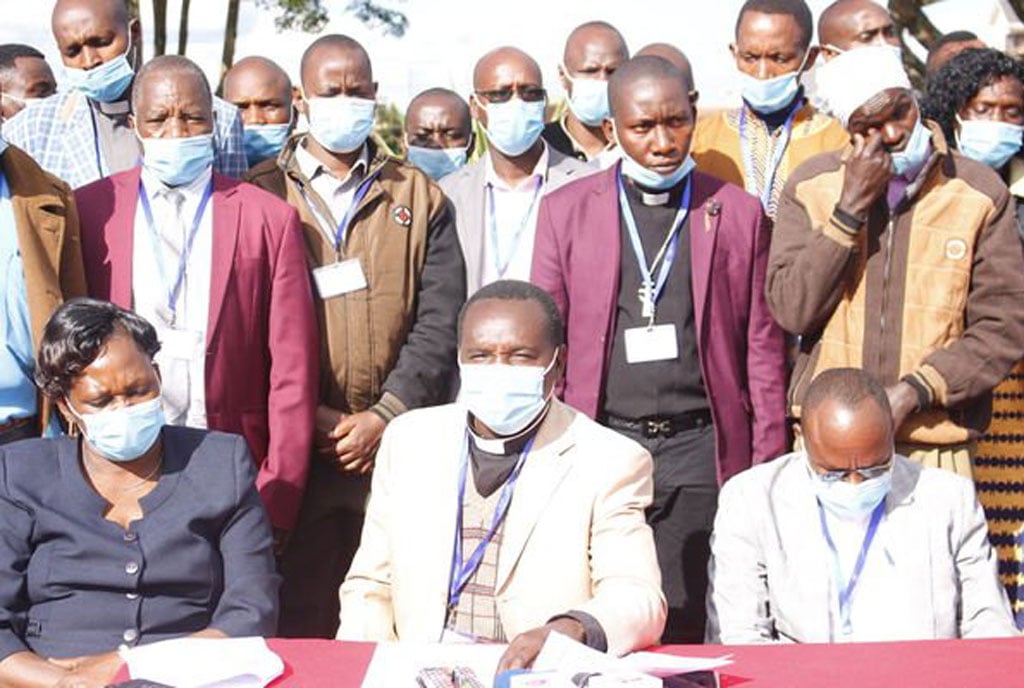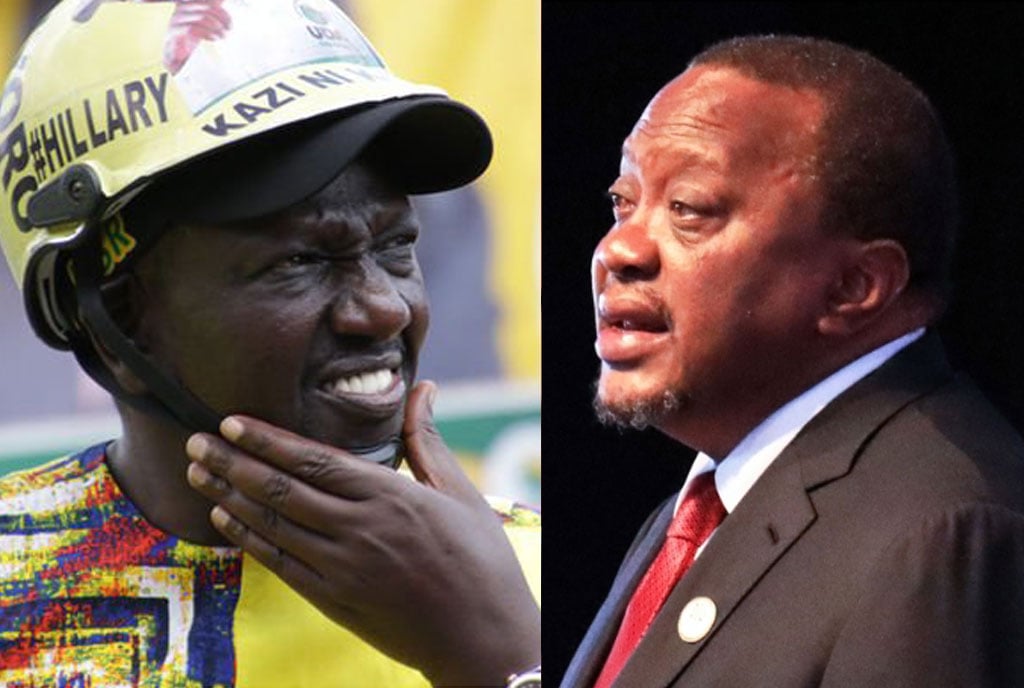We will take politicians' 'dirty' money and cleanse it - Kenyan clergy

NCCK upper eastern region leaders during a media briefing in Meru Town, Kenya on June 8, 2021. They warned against any attempts to postpone the 2022 General Election. PHOTO/NMG
What you need to know:
- Politicians prefer churches with large congregations as they provide an opportunity to get votes without much hassle.
The National Council of Churches in Kenya (NCCK) Meru branch has advised churches to take donations from politicians arguing that the ‘church will pray for sanctification of the contributions’.
This is an about turn from last year’s directive by NCCK Upper Eastern region committee that advised churches to avoid seeking donations from politicians in efforts to prevent abuse of places of worship during the campaigns.
"...this regional committee urges all faith leaders in our counties to avoid asking for donations from politicians or aspirants. When you ask for donations, they take advantage to use the sanctuaries and worship meetings to engage in political vitriol and divisive campaigns," NCCK Upper Eastern region chairperson Bishop Jadiel Kaigongi warned in February last year.
Politicians prefer churches with large congregations as they provide an opportunity to get votes without much hassle.
But addressing journalists on Tuesday, NCCK Meru County leaders said politicians are members of the congregations.
“…we cannot deny them an opportunity to give. The church leaders may not know the source of money being given in church by congregants, only the giver and God know…” NCCK Meru Coordinating committee chairperson Bishop Justin Bundi said.
“This is the reason the Church will always pray for sanctification of all the contributions after the congregants give. Therefore, we will hold the politicians with equal regard like other congregants,” he added.
While calling for peace and tolerance during the political season, the clergy said the church will continue participating in politics as doing otherwise was abdicating its role in the society.
The Church leaders however maintained that politicians will not be allowed to play politics on the pulpit.
“While some of them are church leaders and preachers, they must not use the pulpit to play politics. This is why the church will be keen to be in control,” said Bishop Bundi.
He said religious leaders are the custodians of pastoral and moral issues in the society as “the voice of the voiceless in our communities. Therefore, our voice concerning governance matters must be heard.”
The NCCK also demanded that the church be involved in public participation forums of both the national and county governments so as to add its voice on development issues.
Bishop Bundi expressed concern over politicians’ use of words that may hurt a section of Kenyans and disturb the peace.
“The politicians must be careful not to cause divisions in the country as they hold their campaigns. We call upon all citizens, media houses, politicians, the government and all actors to embrace ways of coexisting during and after the general elections,” Bishop Bundi said.
They called on all Kenyans to live in harmony and desist from uttering words that may disturb the peace of the country.
NCCK has been using its member churches to preach the message of peace and tolerance before, during and after the general election.
*Written by David Muchui




